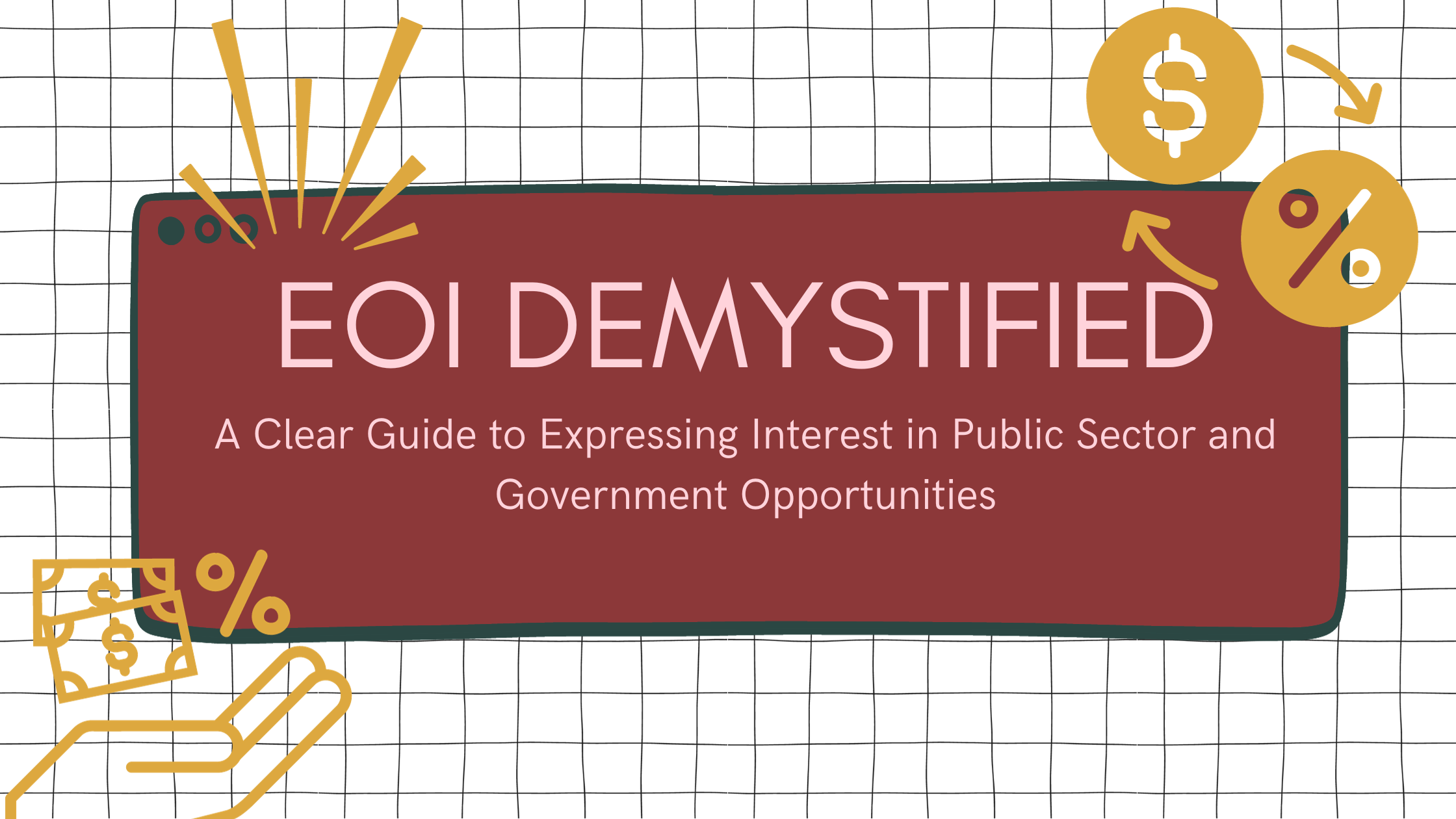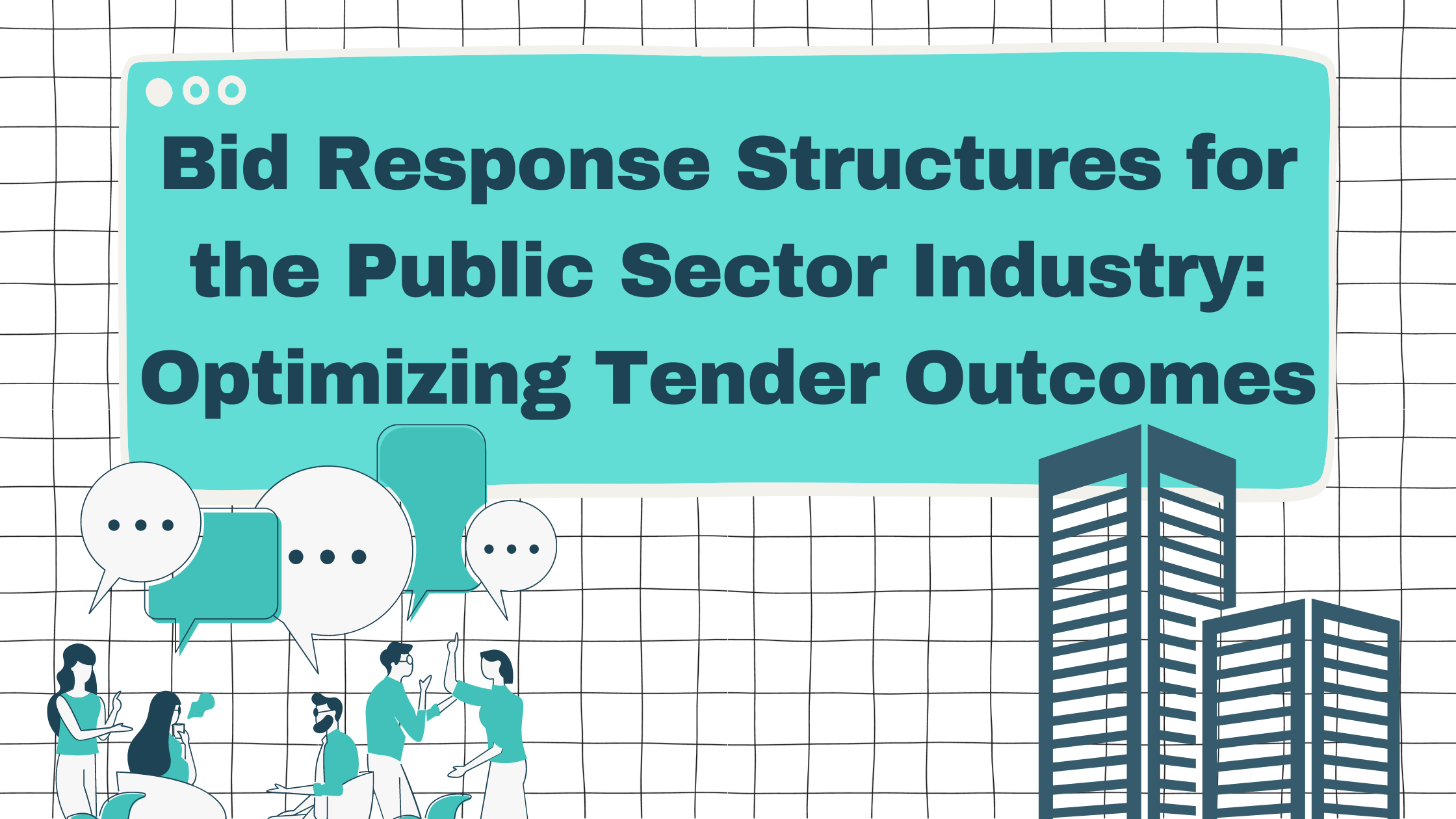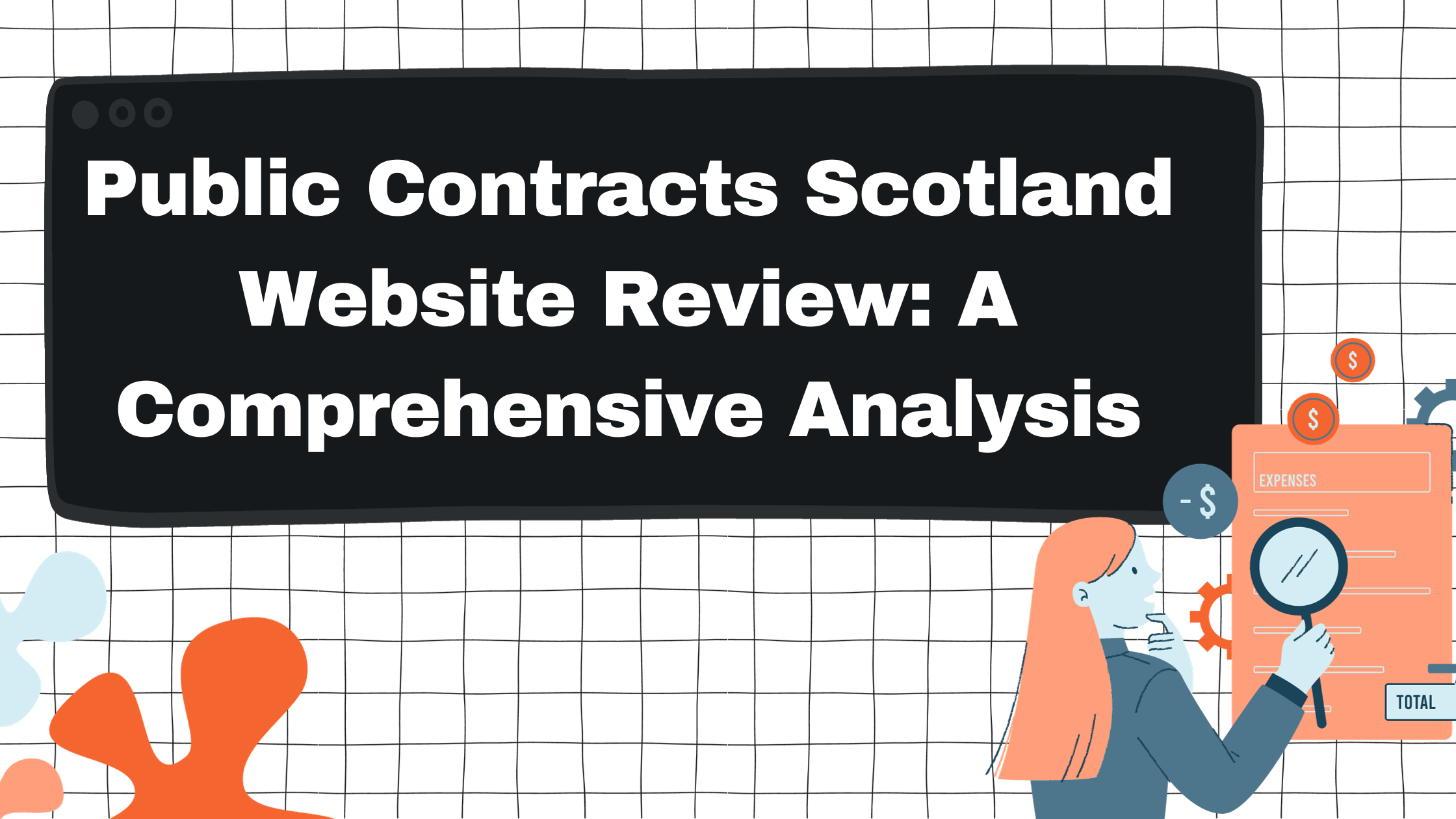Eligibility and Expertise in Proposal Writing Services for Submitting RFPs to Government Entities

Need Help with Your Bid?
Get in touch by filling out the form and one of our advisors will be in contact.
Contact UsWho Can Write and Submit Government Bids: Understanding the Eligibility Criteria
Engaging in the government procurement process can be a lucrative opportunity for businesses of all sizes, but it's essential to understand who is eligible to write and submit government bids. Traditionally, government contracts are open to a broad range of vendors, from large corporations to small and medium-sized enterprises (SMEs). The ability to apply for government contracts typically requires the entity to meet certain criteria, which may include having a clear track record, the necessary operational capacity, and the ability to comply with regulatory standards.

The process of preparing and submitting a bid for government contracts, known as invitations to tender (ITT), involves several steps that potential bidders must follow meticulously. Companies that wish to navigate this process successfully must not only be adept at showcasing their qualifications and understanding the scope of work but must also be skilled in presenting a compelling case through their proposal that highlights their ability to deliver value. Moreover, engaging in the bidding process requires readiness to handle extensive documentation, strict adherence to submission deadlines, and a strategic approach to stand out among competitors.
Key Takeaways
- Eligible entities for government bidding range from large corporations to SMEs.
- Successful bidding requires compliance with ITT processes and criteria.
- Strategic presentation and adherence to guidelines are critical for bid submission.
Understanding Government Procurement
In the realm of government procurement, grasping the nuances of the process and the regulatory frameworks is vital for potential suppliers. Precision in compliance and understanding the multi-layered requirements are key for entities wishing to navigate this sector successfully.
Overview of the Procurement Process
The procurement process by public entities involves several steps aimed at acquiring goods, services, or works from external suppliers. This process begins with the identification of needs and culminates in the awarding of a contract. Key stages typically include:
- Planning and Market Research: Establishing what is needed and researching potential suppliers.
- Publishing a Tender: Announcing the opportunity for vendors to submit their bids.
- Evaluation of Offers: Clear criteria are applied to assess the bids.
- Awarding of Contract: The winning bid is chosen, and the contract is finalized.
Local governments and public sector bodies must conduct this process impartially and with transparency to ensure fair competition.
Public Sector Procurement Regulations
Regulations governing public sector procurement are designed to standardize and control how contracts are tendered within the public sector, which includes EU directives, if applicable, and local government laws. These regulations ensure that the process is competitive, fair, and yields value for money for taxpayers. They include:
- Public Contracts Regulations: Govern how public contracts are announced and awarded.
- EU Directives: Apply to member states, setting out cohesive rules for procurement across the EU.
- Compliance Measures: Entities must adhere to specific rules about transparency, fairness, and non-discrimination.
Regulations are constructed to prevent corruption, enable small and medium enterprises (SMEs) to compete, and foster economic growth. Understanding and adhering to these regulations are non-negotiable for any organization looking to engage in the procurement process.
Preparing Your Bid
When approaching a government tender, detailed preparation is paramount. This includes analyzing the tender document, formulating a winning strategy, crafting a succinct executive summary, and assembling a proficient bid writing team.
Analyzing the Tender Document
It is crucial that one meticulously reviews the tender document to fully understand the scope, specifications, and requirements. The document lays down the blueprint for what the contracting authority expects from a winning bid, including submission details, evaluation criteria, and contractual obligations.
Developing a Winning Strategy
To develop a winning strategy, an organization should align its strengths with the tender's requirements. This involves setting clear objectives, deciding on the unique value proposition that sets the bid apart, and ensuring compliance with all the tender processes.
Crafting an Effective Executive Summary
An executive summary serves as the first impression of the bid. It should encapsulate the key points of the proposition, reflecting compliance, suitability, and benefits in a clear and concise manner. The executive summary must resonate with the evaluators, highlighting how their needs will be met efficiently and effectively.
Building a Strong Bid Writing Team
The composition of a bid writing team is critical. It should include individuals who are not only adept at bid writing but also knowledgeable about the industry and the specific services or goods requested in the tender. Each team member's role should be well-defined to collaborate effectively in producing a coherent and compliant bid.
Navigating the Submission Process
When approaching the submission process for government bids, it is imperative for bidders to thoroughly understand the Invitation to Tender (ITT), leverage the designated online platforms, and rigorously check compliance with exclusion criteria.
Understanding the ITT and Submission Requirements
The ITT is a document that outlines what the government needs from a supplier. It is imperative that bidders carefully review each section of the ITT to ensure they understand the scope, deliverables, timeframe, and the mandatory requirements for submission. Potential bidders should prepare all required information, which may include a selection questionnaire to assess their suitability before moving forward with their bid.
Utilizing Online Platforms
Prospective bidders need to identify the relevant online platforms where government contracts are listed. For UK bidders, platforms such as Find a Tender (FTS), Contracts Finder, Sell2Wales, eTendersNI, and Tenders Electronic Daily (TED) are essential resources. The Enterprise Europe Network can be a valuable tool for companies looking to bid on contracts across Europe. Registrations on these platforms are typically required to access tender documents and submit bids.
Compliance and Exclusion Criteria Check
Compliance with exclusion criteria is crucial. Bidders must ensure that they do not fall under any grounds for mandatory or discretionary exclusion as set out in the procurement regulations. They should conduct a comprehensive review of the exclusion criteria listed in the tender documentation and provide clear, accurate responses to the selection questionnaire that often accompanies the ITT. Non-compliance can lead to automatic dismissal of the bid.
By adhering to these specific steps, bidders can effectively navigate the government tendering process.
Leveraging Data and Evidence

When preparing government bids, it's crucial to incorporate strong data and detailed evidence. This information substantiates a company's capability and expertise.
Importance of Research and Data Analysis
Research and data analysis form the backbone of any successful government bid. Statistics and factual data not only demonstrate due diligence but also provide a solid foundation on which to build the proposal. A company that thoroughly researches the requirements and objectives of the bid can tailor its proposition, showing alignment with the contracting agency's goals. The use of quantifiable statistics serves to benchmark current performance metrics against the proposed outcomes, ensuring that the company's offering is both realistic and compelling.
Presenting Case Studies and Testimonials
Including relevant case studies within the bid allows a company to showcase their experience and effectiveness in a real-world context. Case studies act as tangible evidence of a company's ability to handle similar projects and deliver results. They illuminate the company's past challenges and solutions, providing a narrative that evaluators can easily understand. Meanwhile, testimonials from previous clients add human elements of trust and satisfaction to the data. These first-hand accounts can powerfully affirm the provider’s quality of service and successful track record.
Through the strategic use of research, data, statistics, and anecdotal evidence such as testimonials, bidders can create a persuasive case that speaks to their strengths and experience, greatly enhancing their chances of winning a government contract.
Maximizing Your Bids' Potential
To enhance the potential of government bids, companies must emphasize social value, leverage the advantages of SME participation, and enforce thorough final reviews. These elements, properly addressed, greatly improve the likelihood of winning contract opportunities while mitigating risks.
Understanding the Role of Social Value
Incorporating social value into a bid is not merely a compliance checkbox—it's a strategically advantageous move that can set a bid apart. It demonstrates how a company’s proposed solution generates benefits beyond the straightforward requirements, including economic, environmental, and social improvements. Highlighting social value can reflect positively on the profitability and reputation of a business, showing a commitment to societal impact that many government contracts now prioritize.
Advantages of SME Participation
Small and medium-sized enterprises (SMEs) often assume that government contracts are out of reach, however, their involvement can bring unique advantages. Due to their size, SMEs may offer more personalized services, flexibility, and innovation. They are encouraged to bid as governments recognize the value they bring to the economy, including job creation and local development. SMEs should capitalize on their unique strengths in their bids and succinctly communicate how these traits can deliver superior value.
Final Review and Proofreading
Before submission, conducting a final review and proofreading stage is crucial to ensure accuracy and compliance with the solicitation requirements. This process should not be rushed; errors or omissions can be the determining factor between winning and losing a bid. A bid should be thoroughly vetted not only for grammatical precision but also for coherent presentation of data and adherence to proposal guidelines. A well-proofread bid reflects the company’s attention to detail and professionalism, significantly increasing its chances of success.
After Submission: Monitoring and Feedback

Once a bid has been submitted, it is vital for bidders to monitor the outcome and seek feedback to improve future responses. Effective monitoring can alert an organization to the result of the tender, while feedback can offer valuable insights for planning and refining future bids.
Search for Contract Award Results
Businesses should regularly check the Find a Tender Service for announcements regarding contract awards. This proactive approach allows companies to stay informed about the status of their bids. It's the responsibility of the project manager to ensure that they are up-to-date with this information, which can influence their revenue projections and company trends.
Gathering and Utilizing Feedback
If a bid is unsuccessful, obtaining comprehensive feedback is a critical step. This information can be used to tailor future bids and enhance presentation techniques. Engaging a consultancy specializing in bid writing can help dissect feedback and incorporate it into the bidding strategy. These consultancies keep abreast of industry trends and can provide expert analysis that is crucial for refining planning processes and improving the likelihood of future success.
Frequently Asked Questions
In the realm of government contracting, bid writers and companies must adhere to specific qualifications and processes to participate effectively. The following frequently asked questions address the essential aspects of submitting government bids.
What qualifications are required to become a professional bid writer?
Professional bid writers typically need excellent writing and research skills along with a deep understanding of the tendering process. Specific qualifications can include experience in contract law, business management, or a related field.
How does one become eligible to submit tenders for government contracts?
Eligibility to submit tenders for government contracts often requires the entity to be a registered business and meet certain criteria set out by the contracting authority, such as financial stability, compliance with legal requirements, and relevant experience.
What is the process for submitting a bid for a government contract?
Submitting a bid for a government contract involves several steps: finding a contract, understanding the requirements, preparing a bid that addresses all criteria, and submitting the bid by the deadline. Detailed guidance is often provided with each contracting opportunity.
Can private companies compete for UK government tenders, and if so, how?
Private companies can compete for UK government tenders by registering on the appropriate procurement portals, searching for opportunities, and submitting compliant and competitive bids that offer value for money.
What role does a supporting bidder play in the process of government tenders?
A supporting bidder, typically a subcontractor or a specialist partner, aids the prime contractor by providing specific expertise or components necessary to deliver the contract. They must meet the requirements stipulated by the prime contractor and the government body.
Where can one find government contracts available for bid in the UK?
Government contracts in the UK are listed on various online platforms, such as the Find a Tender service, where businesses can search and apply for contracts across different sectors.
Ready to start your search?
Get in touch by filling out the form to the right and one of our advisors will curate a personalised selection for you.
Get in touchBlogs. Guides. Helpful advice.

Mastering Proposal and RFP Writing for Government and Public Sector Opportunities

Proposal and RFP Writing Services: Enhancing Public Sector Tender Outcomes

.svg)